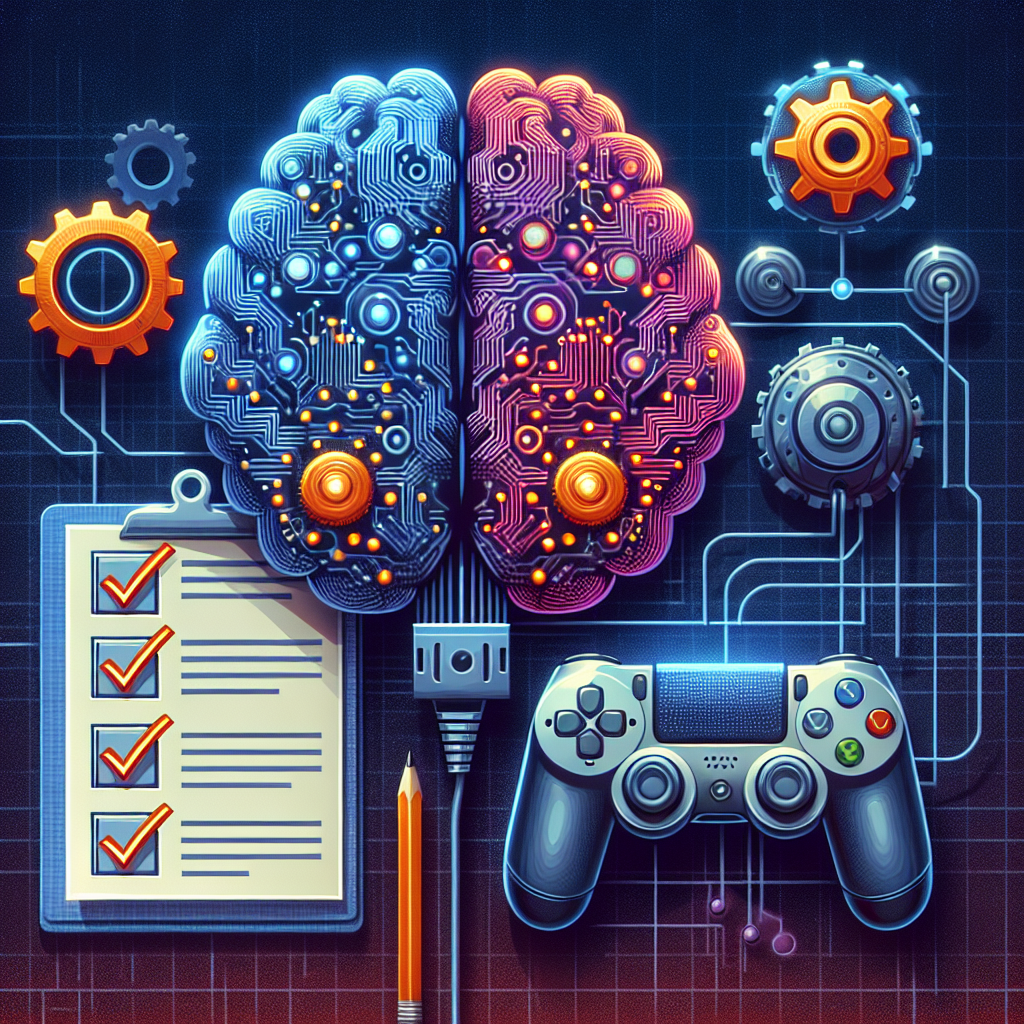Artificial Intelligence (AI) has been making waves in various industries, including the gaming industry. One area where AI is particularly useful is in game testing and quality assurance. In this article, we will explore how AI is being used in game testing and quality assurance, its benefits, challenges, and the future of AI in this field.
AI in Game Testing and Quality Assurance:
Game testing and quality assurance are crucial steps in the development of any video game. Testing ensures that the game functions as intended, is free of bugs and glitches, and provides a seamless gaming experience for players. Traditionally, game testing has been a time-consuming and labor-intensive process, requiring testers to manually play through the game and identify issues.
However, AI has revolutionized game testing by automating many of the testing processes. AI-powered tools can simulate thousands of different scenarios within a game, identifying bugs, glitches, and performance issues much faster and more efficiently than human testers. This not only speeds up the testing process but also helps developers catch issues early on in the development cycle, saving time and resources.
One of the key ways AI is used in game testing is through the use of machine learning algorithms. These algorithms can analyze gameplay data and identify patterns that indicate potential issues. For example, AI can detect when a player is getting stuck at a certain point in the game, indicating a potential design flaw or bug. AI can also analyze player feedback and sentiment to identify areas of the game that need improvement.
Another way AI is used in game testing is through the use of automated testing tools. These tools can run thousands of tests simultaneously, checking for bugs, glitches, and performance issues across different platforms and devices. This not only saves time but also ensures that the game is thoroughly tested before release.
Benefits of AI in Game Testing and Quality Assurance:
There are several benefits to using AI in game testing and quality assurance. Some of the key advantages include:
1. Speed: AI-powered tools can test games much faster than human testers, reducing the time it takes to identify and fix issues.
2. Efficiency: AI can run thousands of tests simultaneously, ensuring that the game is thoroughly tested before release.
3. Accuracy: AI-powered tools can identify bugs, glitches, and performance issues with a high level of accuracy, reducing the chances of issues slipping through the cracks.
4. Cost-effective: By automating many of the testing processes, AI can help developers save time and resources, ultimately reducing the cost of game development.
Challenges of AI in Game Testing and Quality Assurance:
While AI has many benefits in game testing and quality assurance, there are also some challenges that developers need to be aware of. Some of the key challenges include:
1. Training: AI algorithms require a large amount of data to train properly. Developers need to invest time and resources in training AI models to accurately test games.
2. Complexity: Games are complex systems with many variables. AI algorithms need to be able to handle this complexity and adapt to different scenarios.
3. Bias: AI algorithms can be biased based on the data they are trained on. Developers need to be aware of this and take steps to ensure that AI is fair and unbiased in its testing.
4. Integration: Integrating AI-powered tools into existing testing processes can be challenging. Developers need to ensure that AI tools work seamlessly with their existing workflows.
Future of AI in Game Testing and Quality Assurance:
The future of AI in game testing and quality assurance looks promising. As AI technology continues to advance, we can expect to see even more sophisticated tools and algorithms that can test games with even greater accuracy and efficiency. Some of the key trends to watch for in the future include:
1. Personalization: AI algorithms can analyze player data to personalize the gaming experience, ensuring that players have a seamless and enjoyable experience.
2. Automation: AI-powered tools will continue to automate many of the testing processes, making game testing faster and more efficient.
3. Predictive analytics: AI algorithms can analyze gameplay data to predict player behavior and identify potential issues before they occur.
4. Virtual reality: AI can be used to test virtual reality games, ensuring that the immersive experience is bug-free and glitch-free.
FAQs:
Q: How does AI help in game testing?
A: AI helps in game testing by automating many of the testing processes, running thousands of tests simultaneously, and identifying bugs, glitches, and performance issues with a high level of accuracy.
Q: What are the benefits of using AI in game testing and quality assurance?
A: Some of the key benefits of using AI in game testing and quality assurance include speed, efficiency, accuracy, and cost-effectiveness.
Q: What are some of the challenges of using AI in game testing?
A: Some of the key challenges of using AI in game testing include training, complexity, bias, and integration.
Q: What is the future of AI in game testing and quality assurance?
A: The future of AI in game testing and quality assurance looks promising, with trends such as personalization, automation, predictive analytics, and virtual reality shaping the future of the industry.
In conclusion, AI has the potential to revolutionize game testing and quality assurance, making the process faster, more efficient, and more accurate. While there are challenges to overcome, the benefits of using AI in game testing far outweigh the drawbacks. As AI technology continues to advance, we can expect to see even more sophisticated tools and algorithms that will further enhance the quality of video games and the gaming experience for players.

